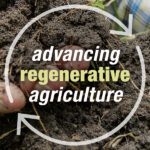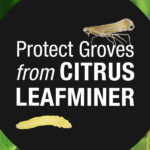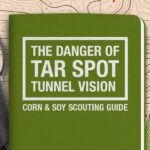Collaboration Makes Lasting Impact on Ag Industry
Syngenta partners with universities in numerous engaging ways.

Impactful innovation doesn’t occur in a vacuum, and partnerships between industry and academia lead to big advances. That’s why Syngenta collaborates with universities to trial its new chemistries, study existing chemistries, talk with growers at field days, and, of course, hire excellent students produced by top ag universities.
Great Chemistry Together
John C. Palumbo, Ph.D., extension entomologist at the University of Arizona, has partnered with Syngenta for decades. “I have always looked at new chemistry for Syngenta, and I have been fortunate that they are always bringing new products along the way,” Palumbo says. “They completely support my research, they share their expertise, information, and provide as much as they can in the compounds, formulations and rates. I always feel in-the-know,” he says.
That partnership helped Syngenta with its development of products having new modes of action, such as the coming-soon PLINAZOLIN® technology, currently under registration review by the United States Environmental Protection Agency (US EPA). For more than six years, Palumbo worked with the Syngenta team, including Elijah Meck, Ph.D., technical product lead at Syngenta, to help develop this technology.
“It will be a new mode of action in the foliar space that will control many different insects and mites and will help manage resistance,” Meck says.
Meck writes trial protocols and works with local Syngenta R&D scientists who send the protocols to university partners to begin research — but that’s only the beginning. The trials rigorously test chemistries for the safety and efficacy of crops. “I will visit trial sites to get perspective on how our products are performing,” Meck says. “I ask a lot of questions: Did they observe anything new or unusual? How is the product performing in their view? How might it fit in the marketplace with other available products?”
Meck says partnerships between industry and universities also benefit growers in terms of the insights they gain about practical successes and challenges. “We want good relationships with universities and extension services and want their honesty about what our products can and can’t do. Growers are better served when they understand all these things.”
I have always looked at new chemistry for Syngenta, and I have been fortunate that they are always bringing new products along the way. They completely support my research, they share their expertise, information, and provide as much as they can in the compounds, formulations and rates. I always feel in-the-know.
Future Generations
Aaron Hager, Ph.D., extension weed scientist at the University of Illinois Urbana-Champaign, dedicates his time to helping farmers manage weeds, examining herbicide application programs in the field and advising masters- and Ph.D.-level students. He has professional relationships with some Syngenta employees dating from when they were in college together. In 2009, he received a question from one of them about a photo of a waterhemp plant uninjured from a postemergence herbicide. “I ended up visiting the field with Syngenta and agreed there was something going on there,” Hager says. “This became the first instance in the world of confirmed resistance to HPPD inhibitors. When UI weed scientists brought our data to Syngenta, they funded our work with the largest single grant in the history of the University of Illinois weed science program.”
Hager says the University of Illinois Urbana-Champaign has been turning students into weed science professionals since the 1950s. His and his peers’ goal is to provide a well-rounded experience for students, preparing them for their future roles in the ag industry.
Seth Strom is a Syngenta field R&D scientist in Monticello, Illinois. Hager was Strom’s Ph.D. advisor and, along with his co-advisors, is who Strom credits with molding him into a well-rounded weed scientist. Strom’s dissertation was a collaborative project with Syngenta, but working in field trials sponsored by different agricultural companies gave him a broad view of the weed science world. Strom also met different people and saw their various scientific approaches at the professional meetings Hager encouraged him to attend. “I’m still applying that knowledge to my current role as a field rep,” Strom says. “That base was really helpful, and accepting a position with Syngenta was like going home for me.”
Syngenta agronomy service representative Kevin Scholl earned both a bachelor’s degree in ag business and a master’s degree in crop science/agronomy from the University of Illinois. Now Scholl uses information from university extension to guide his customers’ decisions about herbicide selection, application and weed resistance management. “They’re a really valuable resource for the state and our customers,” Scholl says.
Supportive Partners
Syngenta finds another opportunity for university collaboration through funding endowments such as the Janis McFarland CERSA Internship Endowment at North Carolina State University. The endowment supports undergraduate and graduate students enrolled in NC State’s College of Agriculture and Life Sciences (CALS), helping them gain real-world internship experience in the crop science regulatory field.
There’s no shortage of partnership opportunities, and no limit on how they impact future agricultural innovations.
3 Min Read
- Research partnerships test new chemistries at the University of Arizona.
- Ag education is an inroad to a robust industry network.
- Endowment funding supports students’ career goals.























